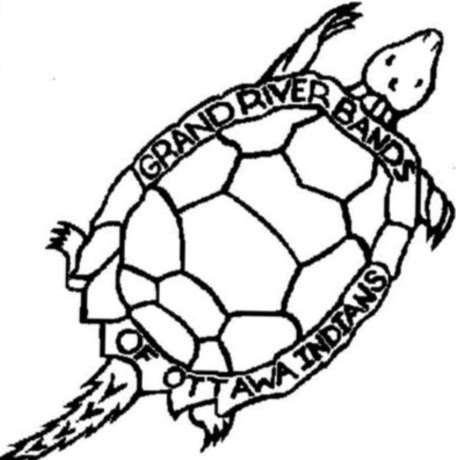
- Details
- By Native News Online Staff
Michigan’s U.S. Senators Debbie Stabenow and Gary Peters have sent a letter to the U.S. Department of the Interior requesting an expedited decision and urgent action regarding the Grand River Bands of Ottawa Indians request for federal recognition.
The Senators join Rep. Bill Huizenga (R-MI) and Rep. Raul Grijalva (D-AZ) in urging action on federal recognition.
The Grand River Bands of Ottawa Indians is a sovereign nation with agreements with the federal government dating back to 1795. The Grand River Bands originally included 19 bands of Ottawa people who lived along the Grand River and other waterways in southwest Michigan. Most of the Grand River Bands’ current membership resides in Kent, Muskegon, and Oceana counties.
“The Department of Interior’s lack of urgency in issuing a determination on federal recognition potentially hinders Grand River Bands’ ability to access vital resources such as health services for tribal members and federal grants to promote self-sufficiency,” Peters and Stabenow wrote in a letter sent this week. “The members and leadership of the Grand River Band deserve a fair and timely determination on federal recognition.” The issue of federal resources for health services is especially important given the COVID-19 pandemic.
“Grand River has experienced extraordinary delays without substantial explanations from the Department,” Grijalva wrote in a separate letter issued Nov. 5. Grijalva requested a determination on the Grand River Band’s petition by the end of this year.
For 27 years, the Grand River Bands have been working to gain federal recognition, and their petition has been on the “active consideration list” since 2013.
“The lack of recognition has hindered our ability to use resources that federally recognized tribes are given,” said Ron Yob, chairman of the Grand River Bands, in a statement. “This lack of recognition has been to the detriment of our tribal members. We want to thank the lawmakers who have supported our efforts urging the Department of the Interior and Secretary Deb Haaland to approve our petition as soon as possible.”
Becoming federally recognized would allow the Grand River Bands access to resources such as tuition, health care, and housing assistance. In 1997, Michigan’s Congress enacted the Michigan Indian Land Claims Settlement Act, which reserved a percentage of the funds appropriated for payment of land claims to newly recognized or reaffirmed tribes, and it includes a provision that allows an additional 11 years for certain Michigan tribes like the Grand River Bands. Because that time has lapsed, the Grand River Bands have missed out on millions of dollars in federal resources.
A PDF document of the letters can be found here.
More Stories Like This
Native News Weekly (August 25, 2024): D.C. BriefsNavajo Nation Mourns the Passing of Former Vice President Rex Lee Jim
Deb Haaland Earns Endorsement From Communications Workers of America Local 7076
University Soccer Standout Leads by Example
Two Native Americans Named to Democratic Congressional Campaign Committee's“Red to Blue” Program
Help us defend tribal sovereignty.
At Native News Online, our mission is rooted in telling the stories that strengthen sovereignty and uplift Indigenous voices — not just at year’s end, but every single day.
Because of your generosity last year, we were able to keep our reporters on the ground in tribal communities, at national gatherings and in the halls of Congress — covering the issues that matter most to Indian Country: sovereignty, culture, education, health and economic opportunity.
That support sustained us through a tough year in 2025. Now, as we look to the year ahead, we need your help right now to ensure warrior journalism remains strong — reporting that defends tribal sovereignty, amplifies Native truth, and holds power accountable.
 The stakes couldn't be higher. Your support keeps Native voices heard, Native stories told and Native sovereignty defended.
The stakes couldn't be higher. Your support keeps Native voices heard, Native stories told and Native sovereignty defended.
Stand with Warrior Journalism today.
Levi Rickert (Potawatomi), Editor & Publisher

